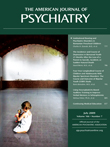The Incidence and Course of Depression in Bereaved Youth 21 Months After the Loss of a Parent to Suicide, Accident, or Sudden Natural Death
Abstract
Objective: This study examined effects of bereavement 21 months after a parent’s death, particularly death by suicide. Method: The participants were 176 offspring, ages 7–25, of parents who died by suicide, accident, or sudden natural death. They were assessed 9 and 21 months after the death, along with 168 nonbereaved subjects. Results: Major depression and alcohol or substance abuse 21 months after the parent’s death were more common among bereaved youth than among comparison subjects. Offspring with parental suicide or accidental death had higher rates of depression than comparison subjects; those with parental suicide had higher rates of alcohol or substance abuse. Youth with parental suicide had a higher incidence of depression than those bereaved by sudden natural death. Bereavement and a past history of depression increased depression risk in the 9 months following the death, which increased depression risk between 9 and 21 months. Losing a mother, blaming others, low self-esteem, negative coping, and complicated grief were associated with depression in the second year. Conclusions: Youth who lose a parent, especially through suicide, are vulnerable to depression and alcohol or substance abuse during the second year after the loss. Depression risk in the second year is mediated by the increased incidence of depression within the first 9 months. The most propitious time to prevent or attenuate depressive episodes in bereaved youth may be shortly after the parent’s death. Interventions that target complicated grief and blaming of others may also improve outcomes in symptomatic youth with parental bereavement.



